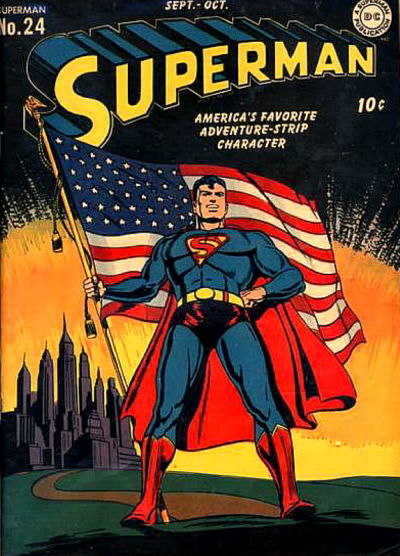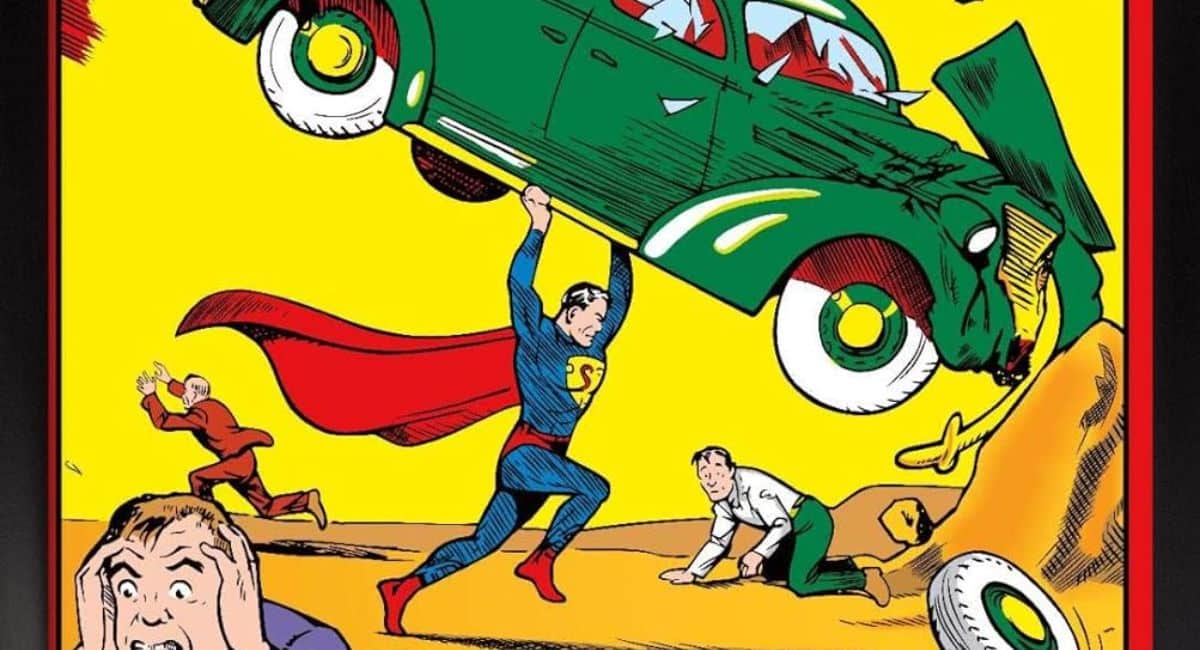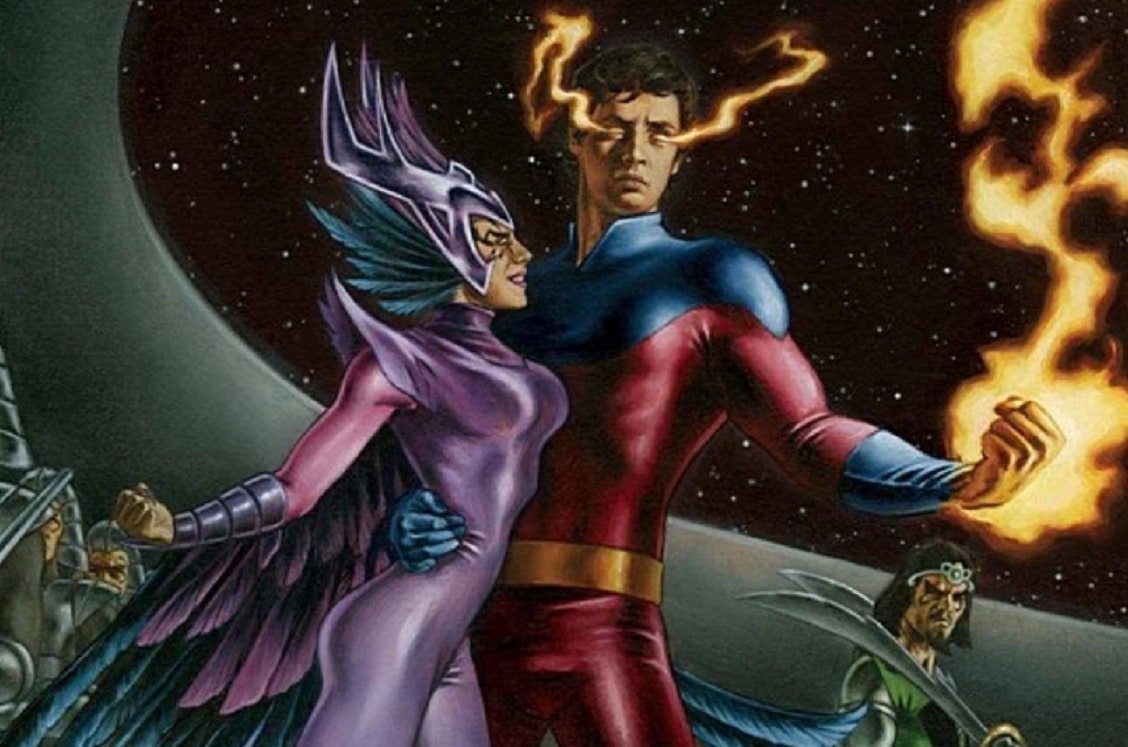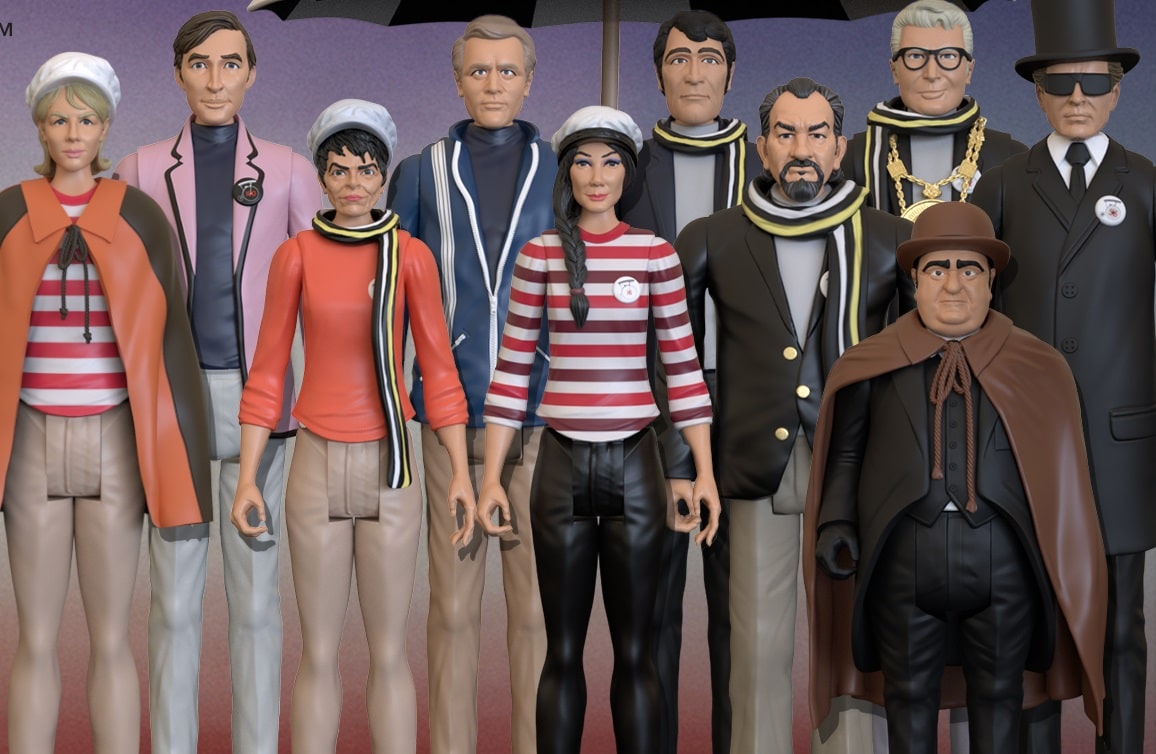News reports are circulating that the Siegel and Shuster heirs have asked the lower court to dismiss DC’s copyright lawsuits. What actually happened is rather different.
The Siegel and Shuster heirs’ attorney, Marc Toberoff, appears to have conceded that the Superman copyright dispute is over and the heirs have lost.
Here’s what happened in more detail & what’s scheduled to happen next.
On February 4, Marc Toberoff filed a motion in federal district court in the Pacific Pictures case. This motion asked the court to dismiss three of DC’s claims for relief. All three of these claims were based primarily in state tort law, not federal copyright law, and the court’s decision on these issues would not undo the previously determined status of the heirs’ claims to the copyright.
What the reports have noted correctly in part is that Toberoff’s motion to dismiss are based (for the most part) on the pertinent statute of limitations. In brief, Toberoff argues that DC filed too late in regard to its tortious interference with contract and tortious interference with economic advantage claims.
Whether the statute of limitations had indeed tolled is an interesting question for lawyers fascinated by procedure (I know you’re out there!), but for the comics community what’s most important is that the only thing the judge’s findings will affect is whether Toberoff and Pacific Pictures will have to pay DC damages and attorney fees on these claims.
Toberoff’s argument on the sixth claim is where the real Siegel and Shuster news lies. In its sixth claim, DC asked for damages on the grounds of the invalidity of the copyright assignment and consent agreements that Toberoff had obtained from the Siegel and Shuster heirs. DC cited as support for this damages claim state unfair competition law and the invalidity of the copyright assignments under the copyright law.
In response, Toberoff supplements a statute of limitations argument with an assertion that the sixth claim is moot.
Why?
One reason is that part of the claim is actually pre-empted by federal copyright law, but that’s not the kicker. Check out the following excerpt (emphasis added):
Here, summary judgment to DC on its Third Claim rendered DC’s Sixth Claim moot, as the Court already held that the long-cancelled 2001/2003 PPC Agreements and the 2008 Agreement are invalid and unenforceable.
There is no “live controversy” between the parties, because the agreements that DC alleged “unfairly violate DC Comics’ rights and interests” have already been declared invalid.
DC’s Sixth Claim is also moot as a practical matter because the Court granted DC summary judgment on its First Claim, declaring that the Shuster Termination was invalid and that the Shuster Estate recovered no Superman copyrights. Dkt. 507 at 13, 16. DC could not have been denied an alleged “right” to exclusively negotiate over copyrights that the Shuster Estate did not recover, and which DC still owned.
Summary judgment should be granted to Defendants as to DC’s Fourth, Fifth and Sixth Claims, and this case brought to a close.
In other words, Toberoff is saying it’s over. The agreements between the heirs and Pacific Pictures–void, with no further argument. The Shuster settlement–valid, and the Shuster claim is no longer in dispute. No need for the court to drag things out any longer.
This is about as close as you get in law to waving the white flag.
Sure, technically that leaves the Siegel claim, which is the subject of a separate case, but this is no longer the voice of a fighter. The schedule for the Siegel case had called for a joint status update by January 25. That deadline is long gone, which raises the question of whether there is talk of the Siegels just folding instead.
Last of all, for Siegel and Shuster case completists, the exhibits to the Toberoff motion include a comprehensive document overview of the Shuster settlement, the Siegel settlement and the Pacific Pictures case. What stands out is the way that the corporate language in the Siegel settlement turns potentially good points into something more sinister.
Case in point: the legal language on both sides re an ongoing relationship after the settlement is signed. The gist: the Siegels won’t say anything bad about DC. The Siegels agree to make public appearances at DC’s behest, where they will then praise DC. They won’t make any other public appearances or say anything about Superman or the case without DC’s written consent. If they want to publish a biography, Time Warner gets first dibs so it can control whatever goes in print. If anyone asks the Siegels about Superman or the case, they will refer the questioner to DC. When Superman goes into the public domain, they are the only people in the world who can’t do anything with the character.
You want to understand how Joanne Siegel could turn away millions of dollars? That’s it, right there. She said so herself in her subsequent letter to AOL Time Warner:
The document is a heartless attempt to rewrite the history of Superman’s creation and to strip Laura and me of the dignity and respect that we deserve. . . . [T]his contract seeks to discredit Jerry Siegel and to undermine our rights, a direct contradiction of what was said.
There are ways you can accomplish the lawyerly aims here while also making people such as the Siegels feel like they have agency, value and respect. What the Siegels got instead was corporate legalese based on the widely accepted premise that the following is a model resolution for all creative disputes:
O cruel, needless misunderstanding! O stubborn, self-willed exile from the loving breast! Two gin-scented tears trickled down the sides of his nose. But it was all right, everything was all right, the struggle was finished. He had won the victory over himself. He loved Big Brother.










Oh Jeff, Jeff, Jeff….
What will you get to write about now?
You don’t have to be a procedural wonk to understand the importance of the admittedly complex issue of civil procedure. That’s because, as far as I understand it, there is still some bargaining to be done. And every DC claim that can be dismissed improves the Siegel’s bargaining position. I think the 9th Circuit’s decision is horrible. It chills the bargaining process by putting in land mines, it also seems to directly contradict one of the cardinal rules of evidence in civil matters – statements made in conjunction with an offer of settlement are not admissible as evidence. And if a term sheet doesn’t fit that description, I don’t know what does. Maybe that’s why the 9th Circuit didn’t want the case to establish a precedent.
@Jonboy Just you wait. Been holding back. Always open to questions too.
@Mitchell Berger The state of the law regarding term sheets would surprise a lot of people who agree to them. It’s in many ways counterintuitive. My take on the 9th Circuit’s use of a memo dispo is that the legal principles for finding a term sheet binding have already been established. This was just an application of established law to a particular fact pattern – no need to offer additional guidance in binding precedent.
Re bargaining to be done: yep, that’s how these things often get wound up after one side wins a huge victory. Thing is, though, DC is now in the stronger position, a reversal of the situation in 2008 and the subsequent expansion of the Siegels’ ownership stake. The filing described in this post is primarily about Toberoff not getting hit with owing damages & attorney fees to DC.
Now can we get Superman back in his original costume instead of Jim Lee’s nightmare?
Jeff, I can’t wait for the book you write on this. You know — the book that I decided in my head will be on sale around this time next year.
Seriously, these as-we-go-along posts are stirring and wrenching and eye-opening. Putting it all in one place in the proper context (and in the right narrative order) would be a must-read.
The human “point” that stands out to me here is the aggressive attempt to strip an author of his right to be considered an author while we here in the 21st century are enjoying a renaissance of author recognition; even corporate authors! “Monsters, Inc.” isn’t just a Pixar film, but a Pete Doctor film, and it’s marketed that way. Kevin Feige, Jon Favreau, and Joss Whedon are given more credit for the Marvel film explosion than the corporation itself is. Today, corporate art producers promote their employed or freelance individual humans as the secret to their success, yet we just have a block preventing us from affording the same recognition to those who built the foundations. It’s because the working relationships then were so fuzzy and disputed that any “give” in those relationships today becomes dangerous to the financial health of the companies. Understood. But it doesn’t make it any less outrageous.
I second Jeff’s book — he is literally the only person who is getting the analysis of this right. Otherwise, facts like these get buried behind single news leads and small paragraphs. No one is simply willing to do the homework anymore.
Something new that struck me was the use of “Jack Kirby’s Fourth World” in a few places in the settlement. I don’t know the exact reason they were putting it in (help?) but just the way it is worded — as his, but emphatically theirs — very ironic and sad.
@Jesse Many lawyers today are domo arigato Mr. Roberto when it comes to preventing future harm to a corporate client. It doesn’t occur to them that treating folks as less than human is offensive in ways that can lead to much more substantial harm down the line.
For instance, the Siegel case has cost Time Warner millions in legal fees–probably more than they would have paid the Siegels under the settlement during the same period of time. The likelihood that Time Warner would have taken the same financial hit if Joanne Siegel had gone off the reservation after transferring DC all the rights in the settlement falls somewhere on the spectrum from slim to none. But all the lawyer can think is control, control, control without any sense of nuance or a strategy informed by human nature.
@Brad Based on the context, my initial sense is that Kirby’s Fourth World + related material are there to forestall on claim to revenue from post-termination versions of Kirby’s Jimmy Olsen/Fourth World/Kamandi material with an arguable or actual Superman connection. (Definition 9, “Superman Property,” is key here.) At the time profits from Darkseid material may have been the main concern, but who knows? Perhaps the original plan for the New 52 was to build it around Goody Rickles.
On a broader level, yes, the phrase “Jack Kirby’s Fourth World” has branding value in the comics community, but in a document designed to deny an original creator the possibility of any credit or financial interest it takes on a wholly different valence.
Jeff,
Aren’t the royalties retroactive? Meaning, isn’t DC paying the royalties from the date the agreement was signed to today, as well as going forward? DC didn’t pursue this case to stop those royalties, or even reduce them, they reacted to Toberoff’s claims.
So saying “the Siegel case has cost Time Warner millions in legal fees–probably more than they would have paid the Siegels under the settlement during the same period of time” isn’t really accurate, is it?
Did the lawsuit cost TW money? Yes. But they were willing to pay the Siegel heirs significant money, and had an agreement to do so. It was the Siegels and Toberoff who decided to try to void that agreement.
What was TW to do? Renegotiate for more? Siegel didn’t want more. Apparently she wanted to stick it to the man. So TW had to defend their property.
@jonboy There was a way to write certain clauses – particularly anything pertinent to non-defamation and other stuff beyond finances – that likely could have kept the settlement process from breaking down into the long-ongoing lawsuit.
When you’re negotiating a settlement, particularly a one involving a situation w/ decades of hard feelings, you don’t stop with cash if you want the settlement to get the folks on the opposite side of the table to sign on the final dotted line. Many disputes aren’t really just about money–and if you pretend they are, you could end up losing more of it than is necessary.
In the Siegel deal, when the dollars were more or less set would have been a great to time to think about how to get the Siegels to see this a good thing, as a form of vindication for Jerry and a means of securing his legacy. Without that, there was always a serious chance it could revert to the mean–a fractious, costly legal dispute.
Now DC is on the hook for the past royalties *and* the decade or so of lost time, extra staff, $ spent massaging it for SEC filings and fees for outside counsel. A bit of strategic humanity in 2002 could have saved all that extra cash for creative projects to further corporation growth–or, more likely, tripling bonuses for C-level executives.
This deserves a book all to its own. But I’d also be interested in an indepth detailed history of the larger universe of notable comic/ fandom trademark and copyright disputes including Superman (Siegel/Shuster), Natl vs Fawcett / Marvel vs DC (Shazam/Capt Marvel), DC vs Bruns, Gerber/ Wolfman/ Friedrich vs Marvel, Warren vs Harris, Gaiman vs McFarlane (Medieval Spawn, Angella, Cogliostro, and Miracleman/Man-of-Miracles), Miracle(Marvel)man, Stan Lee vs Marvel (2002 not Stan Lee Media), Jack Kirby vs Marvel, and hell, let’s even toss in Lucasfilm vs Battlestar Galactica.
My overall understanding of things is that the (admittedly different) courts have been schizophrenic at best over the nearly century of time they’ve been looking at the sausage-making of my beloved hobbies.
Jeff,
So are you thinking that if DC/TW had been “nicer” to the Siegels in 2002, all the subsequent legal wranglings wouldn’t have occurred?
That, I can understand.
BUT, if the Siegels had made up their minds to fight prior to the 2002 settlement regardless of the $ offered (in which case why would they have agreed to it), then no amount of nicety would have fixed it.
All in all, yes, I agree being ‘nice’ solves a heckuva lot more problems than it creates, but at the same time, sometimes you just gotta be a dick in order to get what you want.
JT:
Thanks for your detailed reporting/analysis + I look forward to a book.
JT: I do as well, hopefully it’s not just on this case, but all previous legal cases. Preferably written from the Siegel family POV and explains what they were going through and why they came to that POV, if possible. That’s a book I really want to read.
Yeah, just shocked by how much DC insisted on controlling the narrative of the actual story. It’s the ultimate version of Editorial — making the Siegel life story itself part of approved DC canon. How do you make something work? Fit it in continuity. Really surreal.
Well, if it is the effective end of litigation on the matter, hopefully DC will quickly come up with a settlement the heirs can sign and start paying them based on it.
Always wondered about DC’s insistence that the heirs not be allowed to do anything with Superman if/when it ever falls into the public domain. Do they really think that JERRY SIEGEL’S ORIGINAL SUPERMAN (or whatever they’re allowed to call it if DC still has the trademark) is going to be any greater threat to them than WALT DISNEY PRESENTS SUPERMAN?
I gotta say, I think you’re reading too much into these papers. All that he’s saying is, now the district judge’s ruled, the Shuster lawsuit’s been resolved. DC’s claim can’t go anywhere as long as that’s true. Hard to see how that’s waiving the white flag. He probably just wants to get rid of those claims anyway he can or to take another appeal. Plus, the more interesting news is DC’s new motion for summary judgment in the Siegel case.
@mgh Re summary judgment: DC is trotting to first base after ball four. YMMV re interest.
Re filings: The rhetoric is significantly different. It’s gone from Tigger to Eeyore.
Sure, the fight may continue, but in battles & chess there are battles where both sides know who’s already won but the game goes on for reasons beyond the mere W.
That isn’t to say Toberoff/heirs might not pull a rabbit out of the hat–stranger things have happened in law–but I’m talking about the present status and stance.
@Jeff — “It doesn’t occur to them that treating folks as less than human is offensive in ways that can lead to much more substantial harm down the line.”
I definitely see that here. I, for one, opted out of the DC titles I was ready to buy this week after this (it just felt wrong to so casually throw my support behind strategies and philosophies such as these). That $10 I was going to spend probably doesn’t mean much in the grand scheme of things, but note that I’ve been on the pipe continuously since I started getting an allowance in 1985.
I guess the part that’s striking isn’t the “domo arigato” aspect of lawyer behavior, but the fact that it’s happening right next to completely opposite behavior from the same company. Who does WB say is responsible for the success of their Batman movies? Chris Nolan, Christian Bale, Heath Ledger. Who do they promote as the reason behind the success of their top titles? Jim Lee, Geoff Johns, Scott Snyder, Grant Morrison, Greg Capullo. Who’s responsible for their most iconic, most lucrative property of all time? Robo Coroporate Content Producer XB7-38H, just push the button and Superman appeared.
Also, when I worked in a big media corporation and saw some potentially controversial decisions that could have changed the fates of smaller companies and individuals, I often heard VP- and C-level executives say, “We can’t make a decision that puts someone out of business,” or, “That may seem to make the most sense, but it’s not the right thing to do.” It is always the company’s option to strategize towards palatable human resolutions, as you pointed out in an earlier piece.
@Jesse The experience you describe in the last paragraph is refreshing.
There’s a little more coming in a post that should appear later, but a quick word about the Tigger to Eeyore transformation. A big tell in the 2/4 filing – using the mootness/no case or controversy argument. Toberoff could have relied on the preemption by copyright + statue of limitations arguments, and I think a while back that would have been the choice. Telling the court dismiss a claim because a related final decision makes it moot + the time has come to end the litigation and then appealing the judge’s decision — let’s just say it’s not the best way to win friends and influence appellate judges.
Comments are closed.